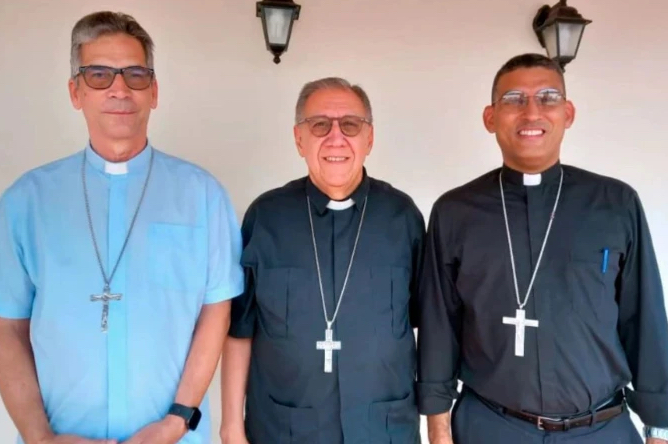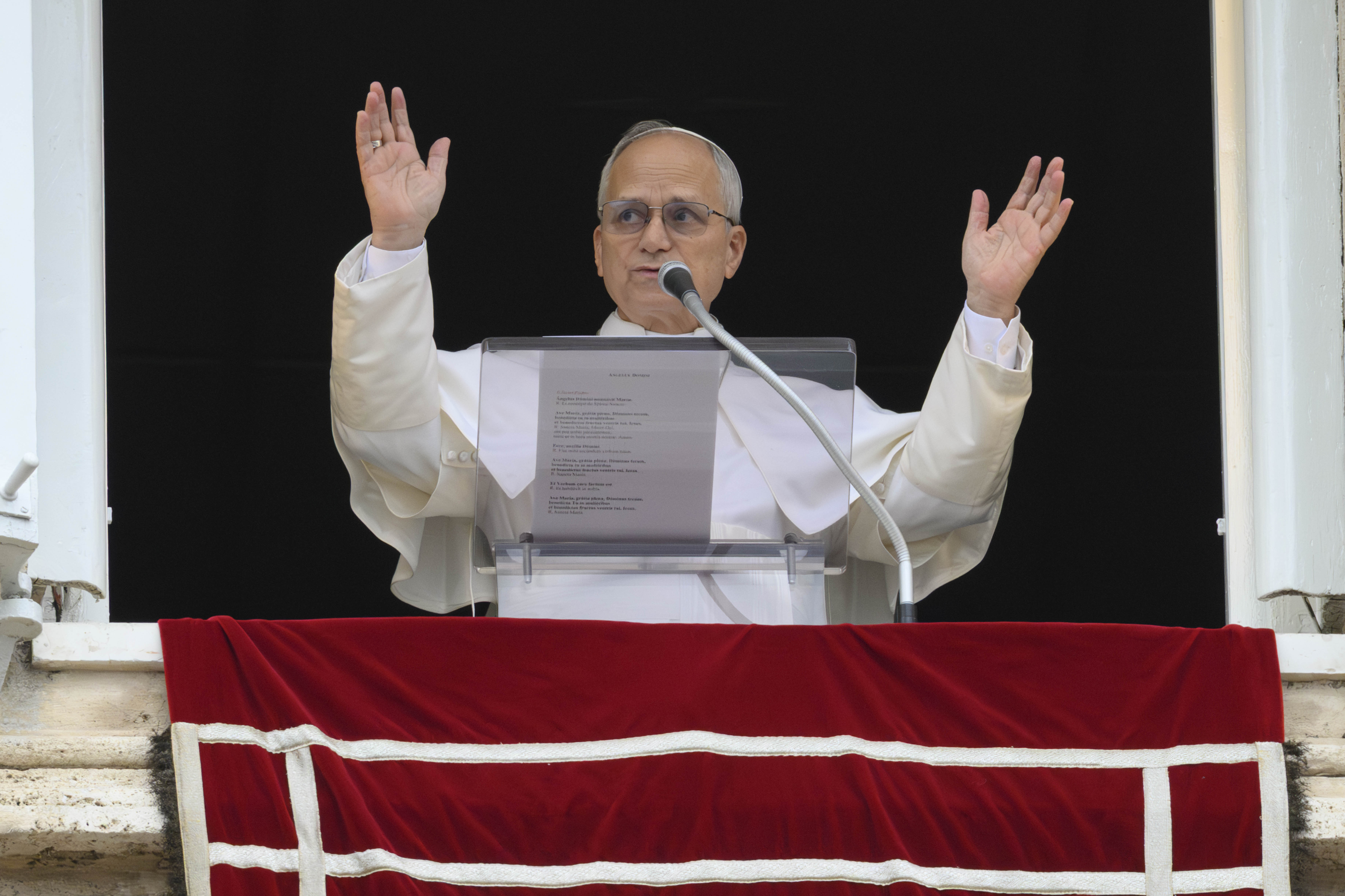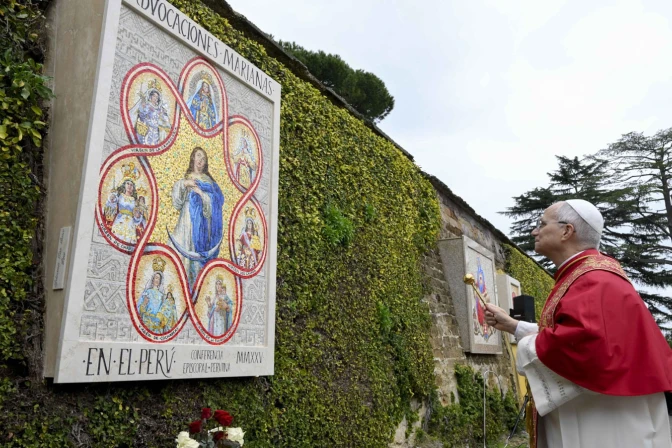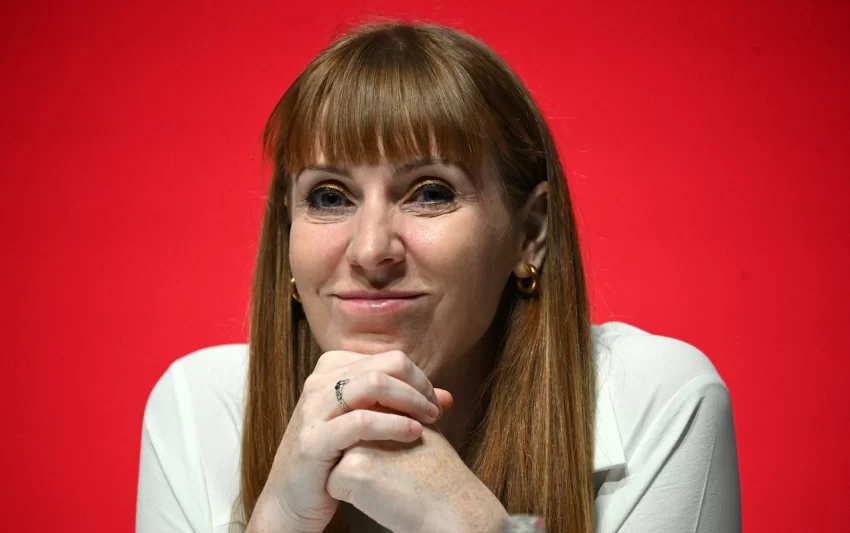The controversial Georgian mine fueling Europe’s new industrial arms race
CHIATURA, Georgia — Giorgi Neparidze, a middle-aged man from near the town of Chiatura in western Georgia, still has marks on his lips from where he sewed his mouth shut during a hunger strike last year.
He says Georgian Manganese, a mining company with close links to the government, has wrought environmental devastation around his home and has ignored the rights of its workers. He is seeking compensation.
Europe, which imports Georgia’s manganese, is partly to blame for the black rivers and collapsing houses in Chiatura district, Neparidze says. The former miner-turned-environmental and civil rights activist claims that in one village, Shukruti, toxic dust from the pits is making people unwell. Filthy black water, laced with heavy metals, periodically spurts out of pumps there. Houses are collapsing as the tunnels underneath them cave in.
Manganese, a black metal traditionally used to reinforce steel, is crucial for Europe’s green energy transition as it is used in both wind turbines and electric car batteries. The metal is also vital for military gear like armor and guns. In 2022, the European Union bought 20,000 metric tons of manganese alloys from Georgia — almost 3 percent of its total supply. A year later the bloc added manganese to its list of critical minerals.
But Chiaturans say their lives are being ruined so that Western Europeans can breathe cleaner air. “We are sacrificed so that others can have better lives,” Neparidze says. “There are only 40,000 people in Chiatura. They might feel ill or live in bad conditions but they are sacrificed so that millions of Europeans can have a cleaner environment.” Neparidze says cancer rates in the region are unusually high. Doctors at a hospital in Chiatura back up the observation, but no official study has linked the illnesses to the mines.

Hope that things will improve appears dim. European companies often don’t know where their manganese is sourced from. As ANEV, Italy’s wind energy association, confirms: “There is no specific obligation to trace all metals used in steel production.”
Last year the EU enacted a law that was meant to change that. The Corporate Sustainability Due Diligence Directive obliges companies to run closer checks on their supply chains and clamp down on any human rights violations, poor working conditions and environmental damage.
But barely a year after it took effect, the European Commission proposed a major weakening of the law in a move to reduce red tape for the bloc’s sluggish industry. EU member countries, motivated by this deregulation agenda, are now pushing for even deeper cuts, while French President Emmanuel Macron and German Chancellor Friedrich Merz want to get rid of the law altogether.
Meanwhile, Europe’s appetite for mined raw materials like manganese, lithium, rare earths, copper and nickel is expected to skyrocket to meet the needs of the clean energy transition and rearmament. Many of these resources are in poorly regulated and often politically repressive jurisdictions, from the Democratic Republic of Congo to Indonesia and Georgia. Weakening the EU supply chain law will have consequences for communities like Neparidze’s.
“Only an empty shell of the directive remains,” says Anna Cavazzini, a member of the European Parliament’s Green Party, adding that the legislature caved to pressure from businesses seeking to reduce their costs. “Now is not the time to abandon the defense of human rights and give corporations a free hand,” she says.

As Georgia’s government pivots toward Russia and stifles dissent, life is becoming increasingly dangerous for activists in Chiatura.
On April 29, four activists including Neparidze were arrested for allegedly assaulting a mine executive. A statement put out by Chiatura Management Company, the firm in charge of staffing Georgian Manganese’s underground operations, says that Tengiz Koberidze, manager of the Shukruti mine, was “verbally abused and pelted with stones.”
Supporters call it a staged provocation in which Koberidze tried to incite violence, and say it’s part of a broader campaign to silence resistance. If convicted they face up to six years behind bars. Koberidze did not respond to requests for comment.
Chiatura residents are protesting over two overlapping issues. On one side, miners are demanding safer working conditions underground, where tunnel collapses have long been a risk, along with higher wages and paid sick leave. When the mine was temporarily shut in October 2024, they were promised 60 percent of their salaries, but many say those payments never materialized. Workers are also raising concerns about mining pollution in the region.
“The company doesn’t raise wages, doesn’t improve safety, and continues to destroy the natural environment. Its profits come not just from extracting resources, but from exploiting both workers and the land,” says one miner, David Chinchaladze.
Georgian Manganese did not respond to interview requests or written questions. Officials at Georgia’s Ministry of Mines and the government’s Environment Protection and Natural Resources Department did not respond to requests for comment.

The second group of protesters comes from the village of Shukruti, which sits directly above the mining tunnels. Their homes are cracking and sinking into the ground. In 2020, Georgian Manganese pledged to pay between 700,000 and 1 million Georgian lari ($252,000 to $360,000) annually in damages — a sum that was meant to be distributed among residents.
But while the company insists the money has been paid, locals — backed by watchdog NGO Social Justice — say otherwise. According to them, fewer than 5 percent of Shukruti’s residents have received any compensation.
Their protest has intensified in the last year, with workers now blocking the roads and Shukruti residents barring entry to the mines. But the risks are intensifying too.
Since suspending EU accession talks last year amid deteriorating relations with the bloc, Georgia’s ruling party has shuttered independent media, arrested protestors and amplified propaganda. The country’s democracy is “backsliding,” says Irakli Kavtaradze, head of the foreign department of the largest opposition political party, United National Movement. Their tactics “sound like they come from a playbook that is written in the Kremlin,” he adds.
‘Kremlin playbook’
In the capital Tbilisi, around 200 kilometers east of Chiatura, protesters have taken to the streets every night since April 2, 2024 when the government unveiled a Kremlin-style “foreign agents” law aimed at muzzling civil society.
Many demonstrators wear sunglasses, scarfs and masks to shield their identities from street cameras, wary of state retaliation.

Their protests swelled in October last year after the government announced it would suspend talks to join the EU. For Georgians, the stakes are high: Russia already occupies 20 percent of the country after its 2008 invasion, and people fear that a more profound drift from the EU could open the door to further aggression.
When POLITICO visited in April, a crowd strode down Rustaveli Avenue, the city’s main artery. Some carried EU flags while others passed around a loudspeaker, taking it in turns to voice defiant chants. “Fire to the oligarchy!” one young woman yelled, the crowd echoing her call. “Power lies in unity with the EU!” another shouted.
They also called out support for protestors in Chiatura, whose fight has become something of a cause célèbre across the country: “Solidarity to Chiatura! Natural resources belong to the people!”
The fight in Chiatura is a microcosm of the country’s broader struggle: The activists are not just taking on a mining company but a corporate giant backed by oligarchs and the ruling elites.
Georgian Manganese’s parent company, Georgian American Alloys, is registered in Luxembourg and counts Ukrainian oligarch Ihor Kolomoisky as a shareholder. He is in custody in Kyiv over allegations that he hired a gang to kill a lawyer who threatened his business interests in 2003. Kolomoisky has also been sanctioned by the United States for his alleged involvement in siphoning billions out of PrivatBank, Ukraine’s largest bank.
Giorgi Kapanadze — a businessman closely connected with the ruling Georgian Dream party of Bidzina Ivanishvili — is listed as general manager of Georgian American Alloys.
Until recently, Kapanadze owned Rustavi TV, a channel notorious for airing pro-government propaganda. The European Parliament has called on the EU to hit Kapanadze with sanctions, accusing him of propping up the country’s repressive regime.
Kolomoisky and Kapanadze did not respond to POLITICO’s requests for comment.
The government swooped in to help Georgian Manganese in 2016 when a Georgian court fined it $82 million for environmental destruction in the region. The state placed it under “special management” and wrote off the fine. A new government-appointed manager was tasked, on paper, with cleaning up the mess. He was supposed to oversee a cleanup of the rivers that flow past the mines, among other promises.

But POLITICO’s own tests based on four samples taken in April 2025 from the Kvirila River, which runs through Chiatura, as well as its tributary, the Bogiristiskali, which were examined in a U.K. licensed laboratory, show the manganese levels in both rivers are over 10 times the legal limit. Iron levels are also higher than legally permitted. Locals use the polluted water to irrigate their crops. Fishermen are also pulling in increasingly empty nets as the heavy metals kill off aquatic life, according to local testimonies. The water from the Kvirila River flows out into the Black Sea, home to endangered dolphins, sturgeons, turtles and sharks.
A 2022 analysis by the Georgian NGO Green Policy found even worse results, with manganese in the Kvirila River averaging 42 times the legal limit. The group also detected excessive levels of iron and lead.
Chronic manganese exposure can lead to irreversible neurological damage — a Parkinson’s-like condition known as manganism — as well as liver, kidney and reproductive harm. Lead and iron are linked to organ failure, cancer and cardiovascular disease.
On Georgian Manganese’s website, the company concedes that “pollution of the Kvirila River” is one of the region’s “ecological challenges,” attributing it to runoff from manganese processing. It claims to have installed German-standard purification filters and claims that “neither polluted nor purified water” currently enters the river.
Protesters like Neparidze aren’t convinced. They claim the filtration system is turned on only when inspectors arrive and that for the rest of the time, untreated wastewater is dumped straight into the rivers.
Blocking exports
Their protests having reaped few results, Chiaturans are taking increasingly extreme measures to make their voices heard.
Gocha Kupatadze, a retired 67-year-old miner, spends his nights in a tarpaulin shelter beside an underground mine, where he complains that rats crawl over him. “This black gold became the black plague for us,” he says. “We have no choice but to protest.”
Kupatadze’s job is to ensure that manganese does not leave the mine. Alongside other protesters he has padlocked the gate to the generator that powers the mine’s ventilation system, making it impossible for anyone to work there.
Kupatadze says he is only resorting to such drastic measures because conditions in his village, Shukruti, have become unlivable. His family home, built in 1958, is now crumbling, with cracks in the walls as the ground beneath it collapses from years of mining. The vines that once sustained his family’s wine-making traditions have long since withered and died.

For over a year, protesters across the region have intermittently blocked mine entrances as well as main roads, determined to stop the valuable ore from leaving Chiatura. In some ways it has worked: Seven months ago, Chiatura Management Company, the firm in charge of staffing Georgian Manganese’s underground operations, announced it would pause production.
“Due to the financial crisis that arose from the radical protests by the people of Shukruti village, the production process in Chiatura has been completely halted,” it read.
Yet to the people of Chiatura, this feels more like a punishment than a triumph.
Manganese has been extracted from the area since 1879 and many residents rely on the mines for their livelihoods. The region bears all the hallmarks of a mining town that thrived during the Soviet Union when conditions in the mines were much better, according to residents. Today, rusted cable cars sway above concrete buildings that house washing stations and aging machinery.
While locals had sought compensation for the damage to their homes, they now just find themselves out of work.

Making matters worse, Georgian Manganese, licensed to mine 16,430 hectares until 2046, is now sourcing much of its ore from open pits instead of underground mines. These are more dangerous to the communities around them: Machines rip open the hillsides to expose shallow craters, while families living next to the pits say toxic dust drifts off them into their gardens and houses.
More pits
The village of Zodi is perched on a plateau surrounded by gently undulating hills, 10 kilometers from Chiatura. Many of its residents rely on farming, and cows roam across its open fields. “It is a beautiful village with a unique microclimate which is great for wine-making,” says Kote Abdushelishvili, a 36-year-old filmmaker from Zodi.
Mining officials say the village sits on manganese reserves. In 2023, caterpillar trucks rolled into Zodi and began ripping up the earth. Villagers, including Abdushelishvili, chased them out. “We stopped them,” he says, “We said if you want to go on, you will have to kill us first.”

Abdushelishvili later went to Georgian Manganese’s Chiatura office to demand a meeting with the state-appointed special manager. When he was turned away, he shouted up to the window: “You can attack us, you can kill us, we will not stop.”
Two days later, as Abdushelishvili strolled through a quiet neighborhood in Tbilisi, masked men jumped out of a car, slammed him to the pavement and beat him up.
Despite the fierce resistance in Chiatura, Georgian Manganese continues to send its metal to European markets. In the first two months of 2025, the EU imported 6,000 metric tons of manganese from Georgia. With the bloc facing mounting pressures — from the climate crisis to new defense demands — its hunger for manganese is set to grow.
As the EU weakens its corporate accountability demands and Georgia drifts further into authoritarianism, the voices of Chiatura’s people are growing even fainter.
“We are not asking for something unreasonable,” says activist Tengiz Gvelesiani, who was recently detained in Chiatura along with Neparidze, “We are asking for healthy lives, a good working environment and fresh air.”
Georgian Manganese did not respond to requests for comment.
This article was developed with the support of Journalismfund Europe.




















:quality(85):upscale()/2023/09/18/918/n/1922398/a1136b676508baddc752f5.20098216_.jpg)
:quality(85):upscale()/2025/10/09/670/n/1922283/00b944c868e7cf4f7b79b3.95741067_.jpg)
:quality(85):upscale()/2025/10/15/765/n/1922398/29c37a6e68efd84bb02f35.49541188_.jpg)
:quality(85):upscale()/2025/09/09/891/n/1922283/7222624268c08ccba1c9a3.01436482_.png)
















